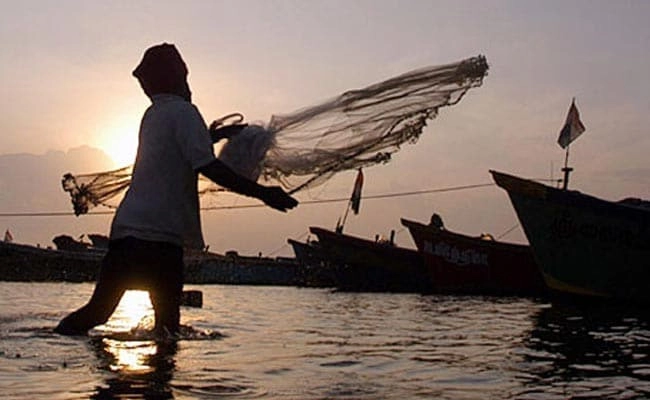Twelve Indian fishermen were recently apprehended by Sri Lankan authorities for allegedly engaging in illegal fishing activities within Sri Lankan waters. This incident highlights the ongoing tensions between the two nations regarding fishing rights and maritime boundaries in the Palk Strait, a body of water that separates the southern tip of India from Sri Lanka. Fishermen from both countries often find themselves in conflict over the rich fishing grounds that are abundant in this region, leading to frequent arrests and diplomatic disputes.
The arrests were made by the Sri Lankan Navy, which has been actively patrolling its waters to enforce fishing regulations. The detained fishermen reportedly had crossed into Sri Lankan territorial waters, where they were accused of using unauthorized fishing methods that could deplete fish stocks and harm the marine ecosystem. This situation has sparked outrage among Indian fishing communities, who argue that they often venture into these waters due to dwindling fish populations in their own territories, driven by overfishing and environmental changes.
The larger issue of illegal fishing in the Palk Strait is indicative of the complex relationship between India and Sri Lanka, where economic needs, cultural ties, and national security intersect. Fishermen from Tamil Nadu, India, have long relied on the rich fishing grounds in the Palk Strait, but the Sri Lankan government maintains that these activities violate its sovereignty and threaten local livelihoods. As a result, the Sri Lankan Navy has intensified its operations, leading to more frequent arrests and heightened tensions.
This incident may lead to diplomatic discussions between the two countries, as both will need to address the underlying issues that drive fishermen to cross maritime boundaries. Negotiations may focus on establishing clearer fishing zones, improving cooperation in fisheries management, and ensuring that both countries can benefit from the abundant marine resources without conflict. As the situation unfolds, it will be crucial for both governments to engage in dialogue to prevent further escalations and foster sustainable fishing practices that benefit all stakeholders involved.




